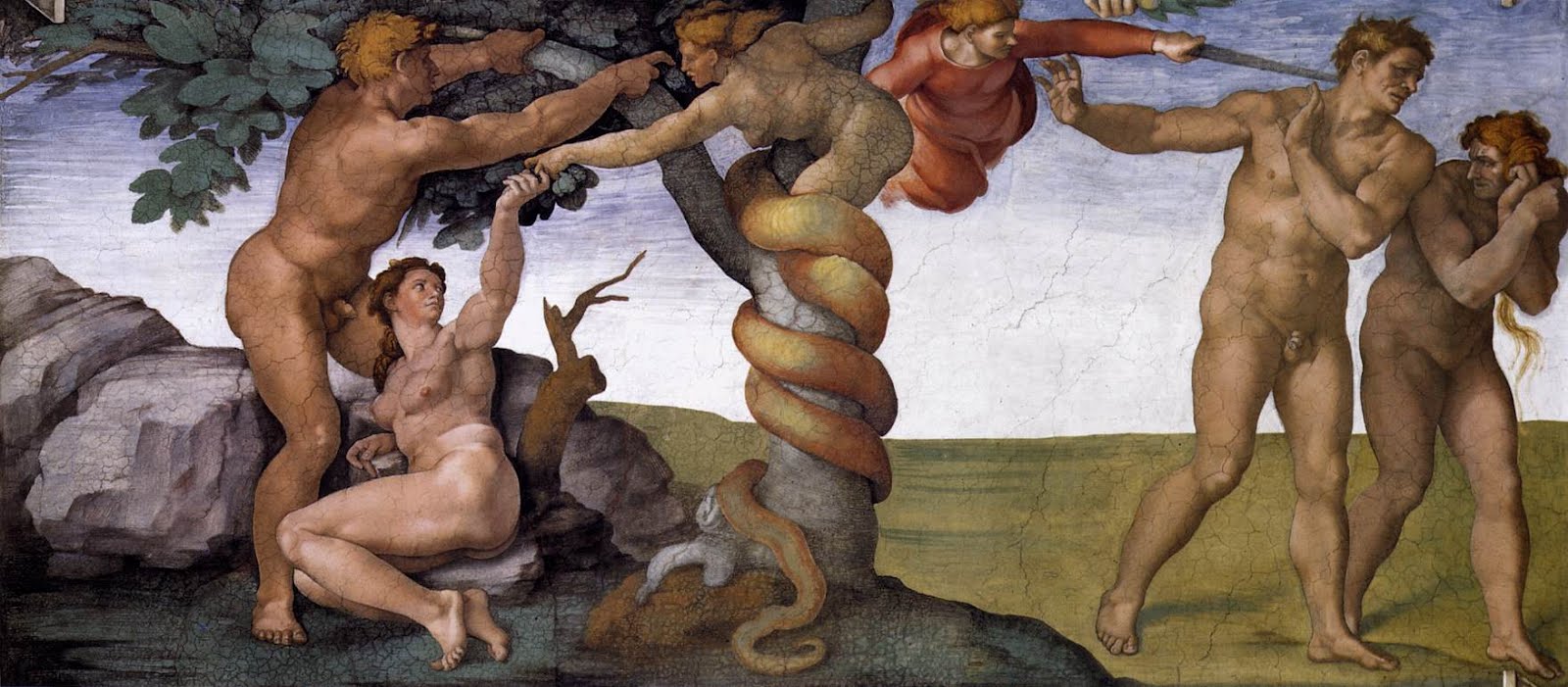
Genesis 2:4b-7, 15-17, 3:1-8 & Matthew 4:1-11
We start a new Sunday series today: a journey through the foundational stories that comprise the First Testament. The trace the story of the people of God from their creation-giving vocation to the tumultuous transformation of their vision in the Babylonian Exile. Today we start with a test that may be all too familiar. What I mean is that it might be so familiar that we hear what we think we’ve heard, rather than what the texts presents us with. The collection of readings from Genesis presents the second story of creation in the Bible. (Yes! There are two. The first is in Genesis 1:1-2:4a). The first deals more with the cosmic aspect of creation, whereas the one we listen to today deals with the ordering of life on Earth. Oftentimes we describe this story as the Fall of Man. We’ve associated it with the sin of eating an apple, and connected it with the ideas that sin is transmitted from generation to generation by sex. Upon a closer look those notions don’t seem to be present in the text.
God creates the man (and woman) from the breath of life. There is a fun aspect to the text as the word for man (Adam) sounds nearly identical to the word for ground or dust (Dama). What makes life possible, and special is the presence of the breath of life. This nasham [נְשָׁמָה] is breathed into the nostrils of the man, like a breath blown to flame fire, to kindle a gift. God is clearly in charge, has an intention, is entering into a relationship of mutuality and trust. God gives the human creatures the vocation of caring for the garden. God gives them permission to freely enjoy the fruits (literally) of creation, and also one prohibition (a boundary or limits or sorts).
We’re not told where the tree of knowledge comes from, nor the serpent. We’re not told why the tree is placed in the garden. What we know from the text is that God creates and invites into partnership for caring for the garden, gives the humans free reign in creation, and also sets a limit. Quickly (at least in the narrative of the story) things change: God’s original intent is frustrated and subverted. The serpent reframes things. Suddenly creation is all about the prohibition – what you can’t do.
Everything else is forgotten. Humanity is no longer defined by freedom and vocation, in a relationship of trust and mutuality with God, rather only by what they can’t do. What the humans understood as God’s will, the given order of creation, is now presented as an option, a choice (which is hinted at as being not in their best interest). Mistrust enters the scene. And with it comes competition, jealousy, envy, self-centeredness and a desire to be more, to have more, to fear that there must be more.
Do things fall from their blessed state of origin, or is this the story of how the first humans, along with us, continue to frustrate, misunderstand and distrust the will of God for the world and for us?
Examen Questions:
- How have you always heard this second creation story? What was it about?
- Are we fallen or frustrated? Is there a difference? How does thinking about yourself via those adjectives change the way you live?; treat yourself?; treat others?; or envision God?
- Adam and Even choose knowledge over trust, wanting control over equality. How is that story part of your story?; our story? How is God inviting you today to choose trust over mistrust, community over control, faith over fear?
More Connections:
An interesting expansion of some of Brueggemann’s interpretation on the creation story “Leaven” [link].
Reread Erik Erickson’s hypothesis as Trust vs. Mistrust as the first stage in the human life cycle. [LINK] How does is that inherent in the creation story? in opposition? Do you see it impacting your relationships in your own life cycle and faith journey? How?